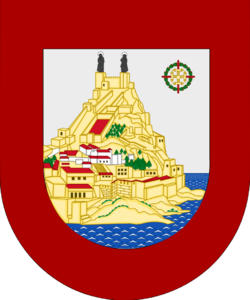House of Orlov-Nikomedis: Difference between revisions
No edit summary |
|||
| Line 49: | Line 49: | ||
==Name== | ==Name== | ||
==History== | ==History== | ||
The present House of Orlov-Bithynia originated from the union of | ==History== | ||
The present House of Orlov-Bithynia originated from the union of Prince Phraates Bithyniadis of the Mesogeian regional royal [[House of Bithynia]] and PLACEHOLDER of the Velikoslavian noble [[House of Orlov]] in early 1501. Being the youngest son of then reigning King Prusias V of Bithynia, Prince Phraates could only hope to inherit very little of his father's vast estates and possessions as the bulk of which would instead pass to his older brother Prince Nikomedes. It was agreed upon by the two families that the newly wedded couple would live amongst Prince Phraates's wife's relations in the Velikoslavian empire. | |||
In the summer of 1503 the couple produced their first child a son who would carry on the heritage of both his paternal and maternal ancestors, but this joy was soon overshadowed when Prince Phraates' father died suddenly at the end of 1503, which resulted in his arrogant son Prince Nikomedes ascending to the Bithynian throne as King Nikomedes XIX. The young family journeyed to Nikaia, the Bithynian capital were they witnessed Nikomedes XIX's investiture as King in 1504. | |||
Almost a decade after the death of Prince Phraates' father, the parent House of Bithynia was dispossessed of all their lands, properties, and possessions within [[Mesogeia]], when the head of the family King Nikomedes XIX of Bithynia was charged with treason and the attempted usurpation of the imperial sovereignty by the Mesogeian emperor Manuel V Megabagiaridas in 1512. | |||
Nikomedes XIX was placed in the Akropolis of Alexandropolis along with all the male members of house of Bithynia. The Bithynian royal family were imprisoned in the Akropolis for two years until they were finally executed for treason on the grounds of the Akropolis on September 9th, 1514. | |||
==Multilingualism== | ==Multilingualism== | ||
Revision as of 19:57, 25 February 2023
| House of Orlov-Bithynia | |
|---|---|
| Noble Family, Dynasty | |
 | |
| Parent family | House Orlov House of Bithynia |
| Country | Velikoslavia Mesogeia |
| Current region | Ustengrav, Velikoslavia |
| Place of origin | Ustengrav, Velikoslavia |
| Founded | June 16, 1503 |
| Titles | Grand Duke of Ustengrav Count of Rontov |
| Connected members | XXXX |
| Connected families | XXXX |
| Motto | Need generic Latin Motto |
| Properties | Valmacher Castle, Ustengrav, Velikoslavia |
| Website | www.orbith.vl |
Name
History
History
The present House of Orlov-Bithynia originated from the union of Prince Phraates Bithyniadis of the Mesogeian regional royal House of Bithynia and PLACEHOLDER of the Velikoslavian noble House of Orlov in early 1501. Being the youngest son of then reigning King Prusias V of Bithynia, Prince Phraates could only hope to inherit very little of his father's vast estates and possessions as the bulk of which would instead pass to his older brother Prince Nikomedes. It was agreed upon by the two families that the newly wedded couple would live amongst Prince Phraates's wife's relations in the Velikoslavian empire.
In the summer of 1503 the couple produced their first child a son who would carry on the heritage of both his paternal and maternal ancestors, but this joy was soon overshadowed when Prince Phraates' father died suddenly at the end of 1503, which resulted in his arrogant son Prince Nikomedes ascending to the Bithynian throne as King Nikomedes XIX. The young family journeyed to Nikaia, the Bithynian capital were they witnessed Nikomedes XIX's investiture as King in 1504.
Almost a decade after the death of Prince Phraates' father, the parent House of Bithynia was dispossessed of all their lands, properties, and possessions within Mesogeia, when the head of the family King Nikomedes XIX of Bithynia was charged with treason and the attempted usurpation of the imperial sovereignty by the Mesogeian emperor Manuel V Megabagiaridas in 1512.
Nikomedes XIX was placed in the Akropolis of Alexandropolis along with all the male members of house of Bithynia. The Bithynian royal family were imprisoned in the Akropolis for two years until they were finally executed for treason on the grounds of the Akropolis on September 9th, 1514.